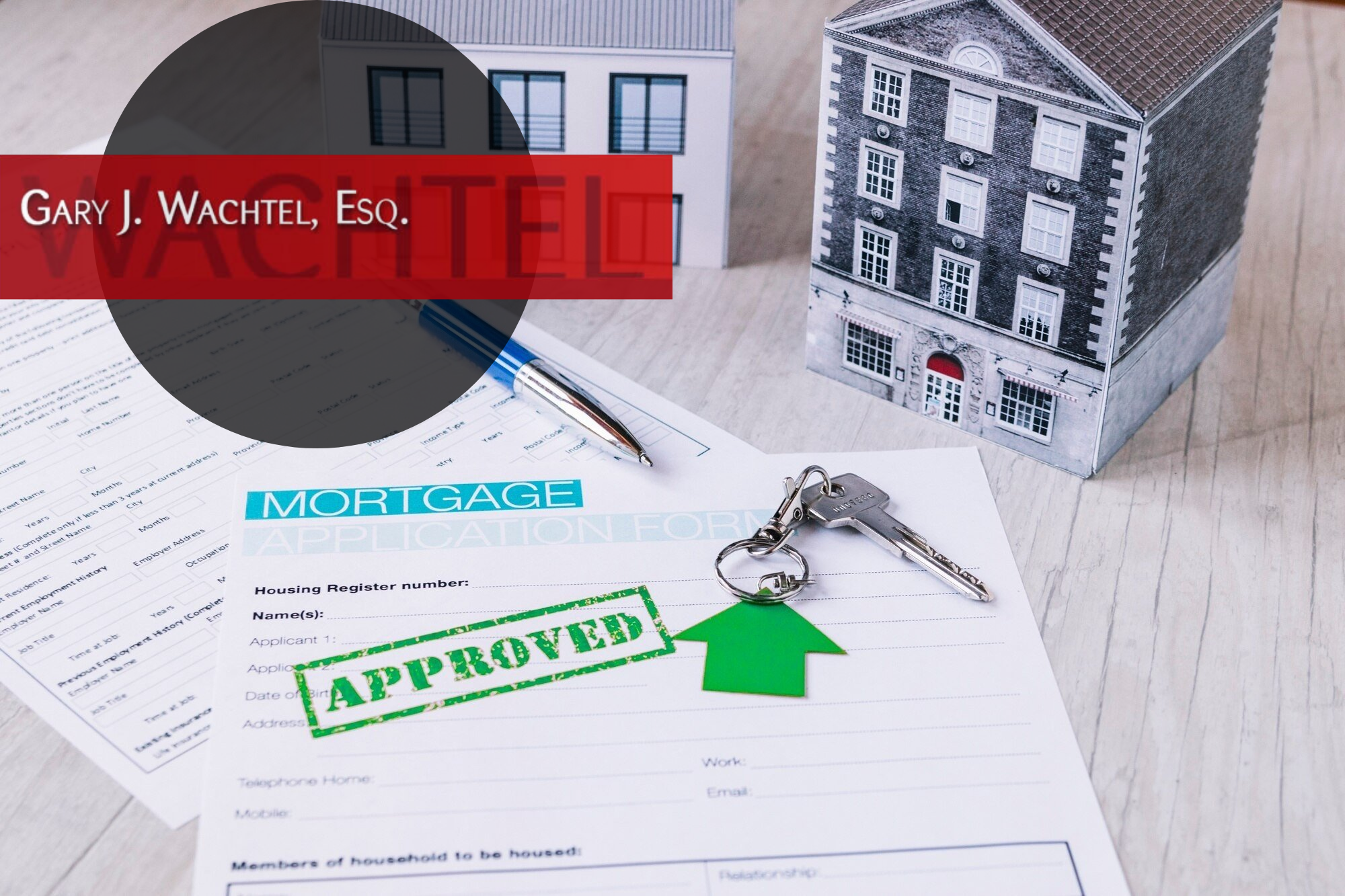For tenants and landlords in New York City, rent increases can be one of the most contentious and confusing issues in the rental relationship. With one of the most regulated housing markets in the country, NYC imposes a patchwork of rules that determine how much—and how often—rent can be raised. From rent-controlled apartments with decades-old pricing to market-rate units with soaring costs, understanding what’s legally permissible versus what’s not is critical for avoiding conflict and protecting one’s rights. Yet, many renters and property owners remain unclear about the law, especially as city and state regulations continue to evolve.
In recent years, the state has enacted sweeping tenant protections under the Housing Stability and Tenant Protection Act (HSTPA), reshaping the landscape for rent increases, lease renewals, and tenant rights. This has made it even more important for both parties to be aware of their legal standing. For tenants unsure if their latest rent hike is justified—or landlords seeking to remain compliant while managing rising costs—turning to a knowledgeable tenant attorney New York is more than a smart move. It’s often a necessary step to ensure fairness, legality, and peace of mind in today’s competitive rental market.
Understanding NYC Rent Regulation Laws
NYC’s rental market is divided into three main categories: market-rate, rent-stabilized, and rent-controlled apartments. These classifications determine the kind of rent increases landlords can legally impose.
- Rent-Controlled Apartments: A small percentage of units fall under rent control, typically occupied by long-term tenants. The rules governing these apartments are strict, and landlords must adhere to limits set by the New York State Division of Housing and Community Renewal (DHCR).
- Rent-Stabilized Apartments: These are far more common. The Rent Guidelines Board (RGB) sets annual limits on rent increases for stabilized units. For example, in 2024, the RGB approved a 3% increase for one-year leases and 6% for two-year leases.
- Market-Rate Apartments: In contrast, market-rate units aren’t subject to the same controls. However, even in these units, increases must comply with lease terms and anti-discrimination laws.
For tenants unsure of which category their apartment falls into, the NYC Rent Guidelines Board offers a helpful breakdown.

When Is a Rent Increase Legal?
There are several situations where rent increases are permitted under NYC law—provided they meet specific conditions:
- End of Lease Term
A landlord can propose a new rent amount when a lease term ends. If the tenant agrees and signs a new lease, the rent increase is legal. However, any proposed hike must be made in writing and within a reasonable notice period—typically 30 to 60 days depending on the lease length.
- Major Capital Improvements (MCIs)
Landlords of rent-stabilized units can apply to the DHCR for rent increases if they invest in building-wide improvements like new boilers or roofs. However, this doesn’t include ordinary maintenance or cosmetic upgrades. Tenants often require a tenant attorney New York to challenge excessive or unjustified MCI-based increases.
- Individual Apartment Improvements (IAIs)
In some cases, landlords may raise the rent following approved renovations to a single apartment. The DHCR closely monitors these situations, and landlords must provide documented proof of the work and costs.
- Preferential Rents
Many stabilized tenants pay a “preferential rent” that’s lower than the legal regulated rent. At renewal, landlords may raise the rent to the legal maximum—but only if the original lease disclosed the legal rent. Otherwise, they may be in violation.
Red Flags: When Rent Increases May Be Illegal
Tenants must be vigilant for signs that a rent increase may be unlawful or predatory. Common examples include:
- Increases without Proper Notice: NYC law requires landlords to provide advance notice based on how long a tenant has lived in the unit.
- Improper Charges: Adding new, unexplained “fees” or “surcharges” may violate tenant protection laws.
- Retaliatory Increases: Raising rent because a tenant complained to the city or joined a tenants’ union is illegal under New York’s Real Property Law §223-b.
- Discrimination-Based Increases: Any rent hike that appears targeted at a tenant’s race, gender, religion, or other protected class could violate federal and city housing discrimination laws. The NYC Human Rights Commission investigates such claims.
In these cases, working with an experienced tenant attorney New York can help tenants take swift action—whether it’s filing a complaint with DHCR or pursuing litigation.
The Role of a Tenant Attorney in NYC
Navigating rent laws in New York City can be overwhelming. A seasoned tenant attorney New York like those at Gary Wachtel Law can help tenants:
- Determine whether a rent increase is legal
- Gather documentation and evidence
- Negotiate with landlords
- File complaints with regulatory agencies
- Represent tenants in housing court
What sets the firm apart is its dual experience in representing both landlords and tenants. This unique vantage point allows them to anticipate strategies from the other side and craft effective, nuanced legal responses. Beyond defending tenant rights, a skilled attorney can also prevent disputes from escalating by advising clients early and ensuring all legal documentation is in order. With changes like the HSTPA adding new layers of complexity, having a trusted advisor is crucial. The attorneys at Gary Wachtel Law offer not just legal expertise, but reassurance during stressful disputes.
How Landlords Can Protect Themselves
While tenant protections often dominate headlines, landlords in NYC also face a maze of legal requirements that can be just as daunting. Many landlords want to stay within the bounds of the law but find themselves unintentionally violating tenant rights due to the complexity of rent regulations. Issues like improper notice periods, miscalculated rent increases, or unfiled paperwork with the DHCR can all open the door to litigation or penalties. A knowledgeable tenant attorney New York can help landlords stay compliant, draft leases that meet legal standards, and respond effectively to tenant complaints or lawsuits. Legal counsel becomes even more important when navigating changes introduced by the Housing Stability and Tenant Protection Act, which has imposed stricter limits and expanded tenant rights. Working with seasoned professionals like those at Gary Wachtel Law ensures landlords not only avoid costly mistakes but also gain peace of mind in managing their properties.
Understanding Your Rights as a Tenant
The HSTPA significantly altered the power balance between landlords and tenants in NYC. Some of its key protections include:
- Caps on Security Deposits: Now limited to one month’s rent.
- Advance Notice Requirements: Landlords must give 30, 60, or 90 days’ notice for non-renewal or rent increases of 5% or more, depending on the length of occupancy.
- Stricter MCI and IAI Requirements: Designed to prevent abuse and overcharging.
These protections are designed to promote housing stability, but enforcement isn’t always straightforward. Tenants often face pushback from landlords or confusion about how to invoke these rights properly. Without legal support, many renters feel powerless to challenge questionable practices. This is where a knowledgeable tenant attorney New York becomes invaluable. Attorneys can help interpret the law, prepare documentation, and advocate effectively in disputes. The attorneys at Gary Wachtel Law are well-versed in the nuances of the HSTPA and provide tailored guidance to help tenants assert and defend their rights with confidence.

Common Rent Dispute Scenarios
The following real-life inspired examples showcase why legal intervention is sometimes necessary. Rent disputes can arise suddenly and escalate quickly, especially when tenants are unaware of their rights or landlords are unfamiliar with evolving legal standards. These scenarios illustrate just how critical a skilled tenant attorney New York can be in protecting tenant interests and resolving conflicts efficiently. Legal issues are often complex, requiring not just a basic understanding of the law but strategic action to secure a fair outcome.
- Preferential Rent Surprise
A tenant who has lived in a rent-stabilized unit for over five years receives a renewal lease with a $500 increase. The landlord claims the original rent was “preferential” and is now reverting to the legal regulated amount. However, the lease never disclosed this preferential rate. With the assistance of a seasoned tenant attorney New York, the tenant files a complaint with the DHCR and proves the landlord failed to register the legal rent. As a result, the increase is nullified, and the tenant avoids overpaying for a unit they were legally entitled to at the lower rate.
- Illegal Renovation Charges
A tenant in a stabilized unit notices a $250 monthly rent increase following a basic kitchen renovation—new cabinets and countertops. The landlord claims these upgrades justify the increase under the Individual Apartment Improvements (IAI) program. However, the tenant learns that no IAI application was filed, and there’s no documentation proving the renovation costs. With help from Gary Wachtel Law, the tenant successfully challenges the increase, proving it was unauthorized and demanding a rent rollback.
- Harassment Disguised as Rent Hikes
A landlord repeatedly raises rent in small but frequent increments—each time just under the 5% threshold that triggers enhanced notice requirements. Meanwhile, the tenant has reported building violations and participated in tenant association meetings. The pattern suggests retaliation and constructive eviction. With guidance from a tenant attorney New York, the tenant collects evidence of harassment and files both a DHCR and housing court complaint. Legal counsel not only stops the unlawful rent increases but also opens the door to restitution for the tenant’s distress and legal costs.
These disputes highlight the importance of early legal intervention and thorough documentation. In NYC’s complex rental market, being proactive—and legally prepared—can make all the difference.
The Bigger Picture: Market Trends and Legal Shifts
As NYC rebounds from the pandemic and housing demand surges, rent prices are again on the rise. But new tenant protections have created a legal environment where landlords must be increasingly cautious, and tenants more empowered.
For instance, the city has invested heavily in legal resources for tenants, including the Right to Counsel program, which offers legal aid in housing court. However, these services are often overwhelmed. Tenants needing individualized attention, swift action, or strategic advocacy should consider working with a tenant attorney New York like Gary Wachtel Law.
Why Legal Help Is Worth It
Many tenants and landlords delay seeking legal assistance until a problem has escalated—but in NYC’s highly regulated housing environment, waiting can be costly. Rent disputes often involve complex rules, deadlines, and documentation that can be overwhelming to handle alone. That’s why investing in a seasoned tenant attorney New York can be one of the most impactful decisions for resolving issues efficiently and effectively. Attorneys don’t just file paperwork—they offer strategic guidance, negotiate favorable settlements, and advocate in court when necessary. Whether it’s recovering overpaid rent, disputing a rent hike based on insufficient notice, or defending against illegal eviction, legal experts like those at Gary Wachtel Law provide a level of protection and confidence that’s hard to match. In many cases, their services pay for themselves by preventing long-term financial losses and securing fair outcomes. For tenants and landlords alike, expert legal help is a smart, proactive investment.
Final Thoughts
New York City’s rent laws are constantly evolving, making it increasingly important for tenants and landlords to stay informed and prepared. What may seem like a straightforward rent increase can quickly become a legal issue if proper procedures aren’t followed. Understanding the legal distinctions between market-rate and rent-stabilized apartments, knowing what constitutes a valid rent hike, and being aware of tenant protections are crucial steps for navigating the city’s rental market successfully.
Too often, tenants assume they have no choice but to accept a rent increase—or landlords mistakenly believe they’re acting within their rights. In both cases, misinformation can lead to costly consequences. Whether you’re dealing with major capital improvements, preferential rent disputes, or confusing lease terms, having a qualified tenant attorney New York by your side can save you time, money, and stress.
The attorneys at Gary Wachtel Law combine deep experience with personalized service, helping clients address rent-related issues with confidence. Their insights are not only rooted in years of practice but also in a genuine commitment to fairness and client advocacy. In a city where rental dynamics shift rapidly and the stakes are high, reliable legal guidance isn’t just helpful—it’s a competitive advantage that both tenants and landlords can’t afford to overlook.





